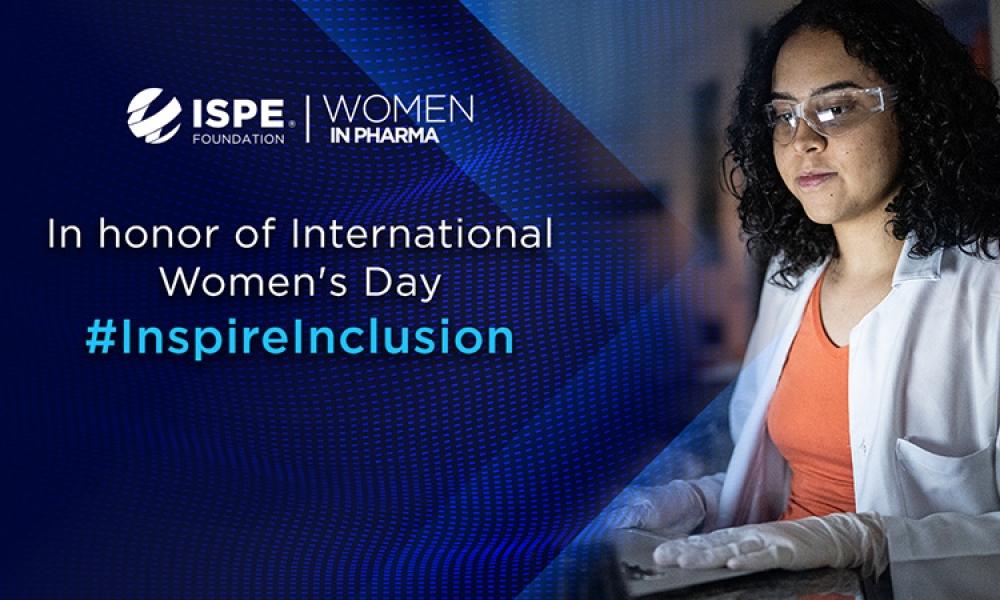2017 ISPE Training Course Opportunities

Europe
Effective and Efficient Deployment of Operational Excellence—Striving for World-Class Performance in Pharmaceutical Operations (T56)
8–9 May
Institute of Technology Management (ITEMHSG), University of St Gallen, Switzerland
Do you know how to measure operational excellence and identify solutions to address manufacturing and compliance issues? Operations are defined as the transformative process within a series of activities along a value chain extending from supplier to customer. Operations management designs, operates, and improves supply chain systems, providing the pharmaceutical industry with a knowledge base from which to promote the use of best practices.
Effective and Efficient Deployment of Operational Excellence—Striving for World Class Performance in Pharmaceutical Operations is designed to provide participants with a deep understanding of how to measure operational excellence, including insights on relevant qualitative enablers as well as meaningful quantitative performance indicators. Using the well-established architecture of the St. Gallen OPEX benchmarking, the course leverages this industry-tested benchmarking approach to identify appropriate solutions for specific problems to address issues in manufacturing and compliance.
A GAMP® Approach to Data Integrity, Electronic Records and Signatures, and Operation of GxP Computerized Systems (T50)
8–10 May
Copenhagen, Denmark
Can your data integrity process stand up to regulatory scrutiny? Data integrity is currently one of the highest cited areas in regulatory observations and a topic of great interest for both industry and regulatory agencies that are reevaluating industry guidance and their enforcement strategies. A GAMP Approach to Data Integrity, Electronic Records and Signatures, and Operation of GxP Computerized Systems will cover data integrity, electronic records and signatures, and the compliant operation of GxP computerized systems to provide the tools and techniques to implement proper data controls to ensure the integrity and validity of the information throughout the data lifecycle.
HVAC (T14)
8–10 May
Copenhagen, Denmark
Are you able to resolve common HVAC issues for bio, bulk, laboratory, packaging, OSD, sterile, and warehousing operations? The HVAC course will include risk-focused discussions about change-rate frequency, facility classification, cross-contamination, system or individual component qualifying, common issues and problems in the operation of a facility, and maintaining readiness for cGMP inspection. Topics include control system alarm management, common system construction deficiencies, cGMP documentation, how to maintain an “inspection-ready” state, frequency of testing and balancing, airflow visualization, and air change-rate reduction. The course is a thorough review of global cGMP regulations, their common interpretations, and how they can apply to your facility.
C&Q for New and Renovated Facilities: Guidance and Improvements for Successful Delivery (T55)
16–17 May
National Institute for Bioprocessing Research and Training (NIBRT) Dublin, Ireland
Can your C&Q program meet GxP regulations and comply with other relevant local and international governing codes, laws, and regulations? The successful delivery of manufacturing facilities (including small, large, new, expansion, or renovation projects), regulated by various authorities, poses significant challenges to manufacturers, engineering professionals, and equipment suppliers. This C&Q for New and Renovated Facilities: Guidance and Improvements for Successful Delivery course is designed to improve the way in which the industry delivers regulated manufacturing capacity: improving the ability to meet documented process requirements, controlling risks within the manufacturing process, producing high-quality products, and consistently operating to meet product and process requirements. An Overview of Biopharmaceutical.
Manufacturing Processes (T24)
8–9 May
Copenhagen, Denmark
Can you effectively evaluate and compare various process alternatives for manufacturing biotech products? An Overview of Biopharmaceutical Manufacturing Processes covers the principles and unique challenges of biotech manufacturing processes. Topics include: identifying important operating parameters for each unit operation and how they impact process performance, parameters for process validation, critical factors for developing a viable commercial manufacturing process, process/facility relationships, options for single use technologies, cell culture and fermentation, harvest and recovery, viral removal and inactivation, tangential flow filtration, centrifugation, size exclusion, and adsorptive chromatography. Additional content will review current regulatory guidance affecting process development and execution, compare various process aspects of upstream and downstream operation, technology transfer, and trends and future biomanufacturing developments.
Cleaning Validation (T17)
8–9 May
Copenhagen, Denmark
Can you establish, manage, and maintain a scientifically sound cleaning validation program? With the US FDA’s risk-based regulatory initiatives focusing new attention on the risks of cross-contamination, understanding lifecycle management techniques for an effective cleaning validation program is paramount. Cleaning Validation topics include: risk-based approach to cleaning development and verification; risk analysis, control, review and communication; procedures and evaluation tools including FMEA/FEMCA; master planning; PAT; periodic assessment and monitoring; selection of analytical and sampling methods; determination of residues to be targeted and appropriate limits in various pharmaceutical and biotechnology processes; and establishment of scientific rationales acceptable to regulatory inspectors. For mature cleaning validation programs, concepts such as understanding process control, capability, learning to effectively self-audit a cleaning validation program, and documentation will be essential takeaways.
Facility Project Management in the Regulated Pharmaceutical Environment (T26)*
10–11 May
Copenhagen, Denmark
Do you have the tools for successful project delivery? The interactive Facility Project Management in the Regulated Pharmaceutical Environment course provides more than the usual project basics. It develops the concept of project lifecycle from initiation through delivery of business benefits, along with tools to manage all project resources. It is specifically targeted to the needs of facility projects within the regulated pharmaceutical industry and demonstrates the value inherent in the use of “good practice” project management. Trends in regulatory compliance; environmental, health, and safety legislation; project delivery methodologies; and product speed-to-market expectations all affect how pharmaceutical facility projects are managed. Each course module introduces key project management concepts and tools as well as methodologies that specifically support successful project delivery.
OSD: Operations, Quality, Equipment, and Technology (T10)
10–11 May
Copenhagen, Denmark
Do you understand the latest issues associated with oral solid dosage forms? The newly updated OSD: Operations, Quality, Equipment, and Technology course examines current technology and provides scenario-based exercises for system troubleshooting and investigational events for process deviations, discusses quality management and GMP inspection preparation, and provides guidance on advanced asset lifecycle management strategy. A process and production video simulation for unit ops, including mixing, blending, drying, sizing, tableting, encapsulating, and coating gives participants a visual demonstration of current manufacturing and engineering practices. The simulation will present vivid real-time experiences to identify and analyze the problem, identify the root cause, and present solutions.
Practical Implementation of Process Validation Lifecycle Approach (T46)
9–11 May
Copenhagen, Denmark
Do you need a practical understanding of PV principles and expectations in the US and EU? This three-day course, Practical Implementation of Process Validation Lifecycle Approach includes a blend of presentation of concepts and details, followed by related practice application scenarios and exercises that will define the requirements for preparation, planning, and execution of validation/process validation and show how to maintain a state of control. It explores the three stages of the validation product lifecycle, including process design, equipment and utility qualification, establishing and implementing process performance qualification (US) or process validation (Europe) requirements, and putting an ongoing/continued process verification program in place.
United States
Applying the Biopharmaceutical Manufacturing Facilities Baseline® Guide Principles (T31)*
8–9 May
San Diego, California
Do you know the regulatory requirements for new or for renovating biopharmaceutical facilities? Using case studies and exercises our course in facility design provides an overview of the concepts utilized in the development and renovation of sound designs for facilities that manufacture biopharmaceutical products.
Applying the Biopharmaceutical Manufacturing Facilities Baseline® Guide Principles includes a review of facility design and regulatory issues important in the United States and Europe that involve industry trends and changing regulatory policy. Participants will discuss current case studies on a wide array of facility topics and complete class exercises that involve developing facility scope of work and deliverables to meet corporate economic goals and regulatory requirements.
A GAMP® Approach to Data Integrity, Electronic Records and Signatures, and Operation of GxP Computerized Systems (T50)
8–10 May
San Diego, California
Can your data integrity process stand up to regulatory scrutiny? Data integrity is currently one of the highest cited areas in regulatory observations and a topic of great interest for both industry and regulatory agencies that are re-evaluating industry guidance and their enforcement strategies. A GAMP Approach to Data Integrity, Electronic Records and Signatures, and Operation of GxP Computerized Systems course will cover data integrity, electronic records and signatures, and the compliant operation of GxP computerized systems to provide the tools and techniques to implement proper data controls to ensure the integrity and validity of the information throughout the data lifecycle.
Pharmaceutical Water Generation (T04)
8–9 May
San Diego, California
Are you able to differentiate regulatory requirements from regulatory myths for water treatment, storage, and distribution? Using the USP, EP, JP Monograph, USFDA “Guide to Inspections of High Purity Water Systems,” current FDA views, and cGMP requirements, the Pharmaceutical Water Generation course will provide a sound regulatory framework to understand common water system myths. A variety of practical system designs will be evaluated for compliance, as well as their advantages and disadvantages. Particular attention will be paid to microbial control, laboratory water, key design philosophies, systems and component sanitization procedures, operation, testing and maintenance of equipment, and systems for water generation. Attendees will examine methods for proper water quality selection as well as study compendial and noncompendial water, fundamentals of basic water chemistry, and information on common unit operations (deionization, reverse osmosis and distillation). Pretreatment systems, detailed guidance for selection of construction materials, and operation issues related to pharmaceutical water generation systems will also be discussed.
HVAC (T14)
9–11 May
San Diego, California
Are you able to resolve common HVAC issues for bio, bulk, laboratory, packaging, OSD, sterile, and warehousing operations? The HVAC course will include risk-focused discussions about change rate frequency, facility classification, cross contamination, system or individual component qualifying, common issues and problems in the operation of a facility, and maintaining readiness for cGMP inspection. Topics include control system alarm management, common system construction deficiencies, cGMP documentation, how to maintain an “inspection-ready” state, frequency of testing and balancing, airflow visualization, and air change-rate reduction. The course is a thorough review of global cGMP regulations and their common interpretations and how they can apply to your facility.
Storage, Delivery and Qualification of Pharmaceutical Waters (T23)
10–11 May
San Diego, California
The Storage, Delivery and Qualification of Pharmaceutical Waters course provides the essential concepts and principles of specification, design, C&Q of equipment, and systems used to store and distribute water in pharmaceutical manufacturing. Additional topics include understanding the importance of microbiological control, analyzing the principles behind water system testing and qualification, the impact of water quality requirements (compendial and noncompendial), basic requirements for water distribution system component installation and overall system construction, integrating and streamlining commissioning and validation activities, and identifying alternative system designs and their advantages and disadvantages.
Sterile Product Manufacturing Facilities: Applying the ISPE Baseline® Guide and FDA Guidance Principles to Design and Operation (T12)
10–11 May
San Diego, California
Do you know the key requirements and GMPs for sterile manufacturing facilities? Through lectures and group exercises the Sterile Product Manufacturing Facilities: Applying the ISPE Baseline® Guide and FDA Guidance Principles to Design and Operation course reviews regulatory philosophy, aseptic process and equipment considerations, aseptic clean room design and operation, differential pressure requirements, airlocks; basic utility system monitoring, US and European HVAC considerations, C&Q issues, and a brief introduction to barrier isolation technology. An exercise in the layout of an aseptic filling facility will be used to demonstrate how to use process flow diagrams and an accommodation schedule to thoroughly define facility requirements before advancing to the floor plan layout stage. Additional topics include the use of RABS and isolator systems, and methods for contamination control.
Clean in Place Fundamentals (T03)
18–19 May
ISPE Training Institute Tampa, Florida
Do you have the tools to design, build, and implement a cleaning process and identify cleaning solutions to complex cleaning processes? The Clean in Place Fundamentals (T03) course will provide an overview of clean-in-place (CIP) systems including design, integration, and selection of cleaning chemicals. Participants will discuss engineering concepts, principles, and integration of CIP systems, clean-out-of-place (COP) systems, or immersion parts washers. While there will be some discussion of manual cleaning practices, cleaning principles will be primarily introduced as they relate to the dynamics of CIP and COP technologies, with an emphasis on selecting the right cleaning chemistries for specific soil residues. Additional topics covered include a CIP technology review with examples of various pharmaceutical processes that illustrate how CIP technologies and hygienic design can improve cleanability. Other topics for discussion include CIP spray device selection criteria and dynamics of integrating CIP process piping into a pharmaceutical process. A dynamic hands-on workshop will allow participants to work in groups to design, build, and implement a cleaning process for a pharmaceutical application. Participants will apply knowledge gained from the course to identify cleaning solutions to complex cleaning processes.
Science and Risk-based Commissioning and Qualification—Applying the ISPE Good Practice Guide: Applied Risk Management for Commissioning and Qualification (T40)
18–19 May
ISPE Training Institute Tampa, Florida
Is your equipment and facility “fit for use” as defined by current global regulatory authorities? Guidance on the transition of an organization’s approach to C&Q to one that incorporates a science-and risk-based approach is the basis for our Science and Risk-based Commissioning and Qualification—Applying the ISPE Good Practice Guide: Applied Risk Management for Commissioning and Qualification (T40) course. A detailed review of the principles and activities that constitute an efficient and acceptable approach to demonstrating facility and equipment fitness, improving the ability to meet documented process requirements, controlling risks within the manufacturing process, producing high-quality products and consistent operation to meet product user requirements will be explored. Additional emphasis will be placed on a review of ICH documents Q8 (R2), Q9, and Q10 and ASTM E2500.
Turning QbD into a Practical Reality (T43)
1–2 June
ISPE Training Institute Tampa, Florida
Do you know how to use QbD to reduce costs, improve manufacturing and meet regulatory expectations? Turning QbD into a Practical Reality interactive uses group exercises to provide examples of how products and processes can be developed, using QbD with special emphasis on the considerations for implementing these processes in manufacturing. Topics include: understanding the principles of a science-and-risk-based approach; product and process understanding and patient requirements; using tools and techniques provided to understand QRM; implications of relevant ICH, EMA, ASTM E2500, and USFDA Guidelines; QRM tools (FMEA, risk ranking); applying FMEA to control strategy selection; relationship between PQS and GMP and how they link to control strategy; considerations when implementing a control strategy derived from enhanced QbD approaches; and opportunities for continual improvement arising from application of statistical techniques.
A Risk-Based Approach to GxP Process Control Systems: Applying the GAMP® Good Practice Guide: A Risk-Based Approach to GxP Process Control Systems (2nd Edition) (T21)
8–9 June
ISPE Training Institute Tampa, Florida
Are your process control systems fit for use? Using a lifecycle approach for the development and management of process control systems, A Risk-Based Approach to GxP Process Control Systems: Applying the GAMP® Good Practice Guide: A Risk-Based Approach to GxP Process Control Systems (2nd Edition) course demonstrates how the principles and concepts of GAMP® 5 may be practically applied. The course covers both regulated company and supplier quality management systems and the full system lifecycle from concept to retirement. You will learn how appropriate QRM and specification and verification activities should be an integral part of the normal system lifecycle and how to leverage supplier documentation and activities to avoid unnecessary duplication, cost, and waste.
Basic Principles of Computerized Systems Compliance using GAMP® 5, Including Revised Annex 11 and Part 11 Update (T45)
12–14 June
Lilly MQ Learning Center Indianapolis, Indiana
Are you leveraging a risk-based approach when validating your GxP computerized systems? The Basic Principles of Computerized Systems Compliance using GAMP® 5, Including Revised Annex 11 and Part 11 Update course explores tried, tested, and internationally recognized methods and provides a pragmatic and effective framework for achieving computerized systems that are fit for intended use and meet current regulatory requirements.
* ISPE has been reviewed and approved as a provider of project management training by the Project Management Institute (PMI®)


